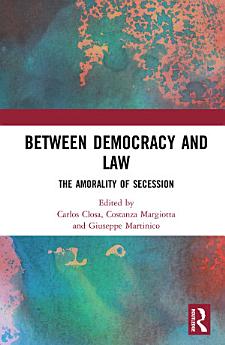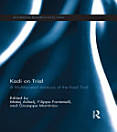Between Democracy and Law: The Amorality of Secession
About this ebook
About the author
Carlos Closa, Spanish National Research Council (CSIC), Madrid and European University Institute (EUI), Florence. Professor Closa has been Jean Monnet Fellow at the European University Institute (EUI), Florence, Visiting Fellow at the Centre for European Studies, Harvard University, Visiting Professor at the College of Europe, Bruges, Emile Nöel Fellow at the Jean Monnet Centre, NYU and Visiting Professor at the University of Groningen, The Netherlands. He is Member of the Scientific Board of the Real Instituto Elcano de Estudios Internacionales y Estratégicos (RIE). He has published widely in various languages on EU citizenship, the EU constitutional structure and the relationship with the Member States.
Costanza Margiotta is Associate Professor of Philosophy and Theory of Law, University of Padua, Italy. She holds a PhD in Legal Theory from the European University Institute, Florence. Her research focuses on secession in international law, European citizenship and on slavery, race and law. She has published widely on these and related areas.
Giuseppe Martinico, is Associate Professor of Comparative Public Law at the Scuola Superiore Sant’Anna, Pisa and Centre for Studies on Federalism, Turin, Italy. Prior to joining the Sant’Anna School of Advanced Studies he was García Pelayo Fellow at the Centro de Estudios Políticos y Constitucionales (CEPC), Madrid, and Max Weber Fellow at the European University Institute, Florence. He is also affiliated to several international research centres where he has been carrying out international projects related to comparative federalism and subnational constitutionalism, and to the constitutional dimensions of EU law and international human rights law, especially the European Convention on Human Rights. He has published widely on these and related areas.








